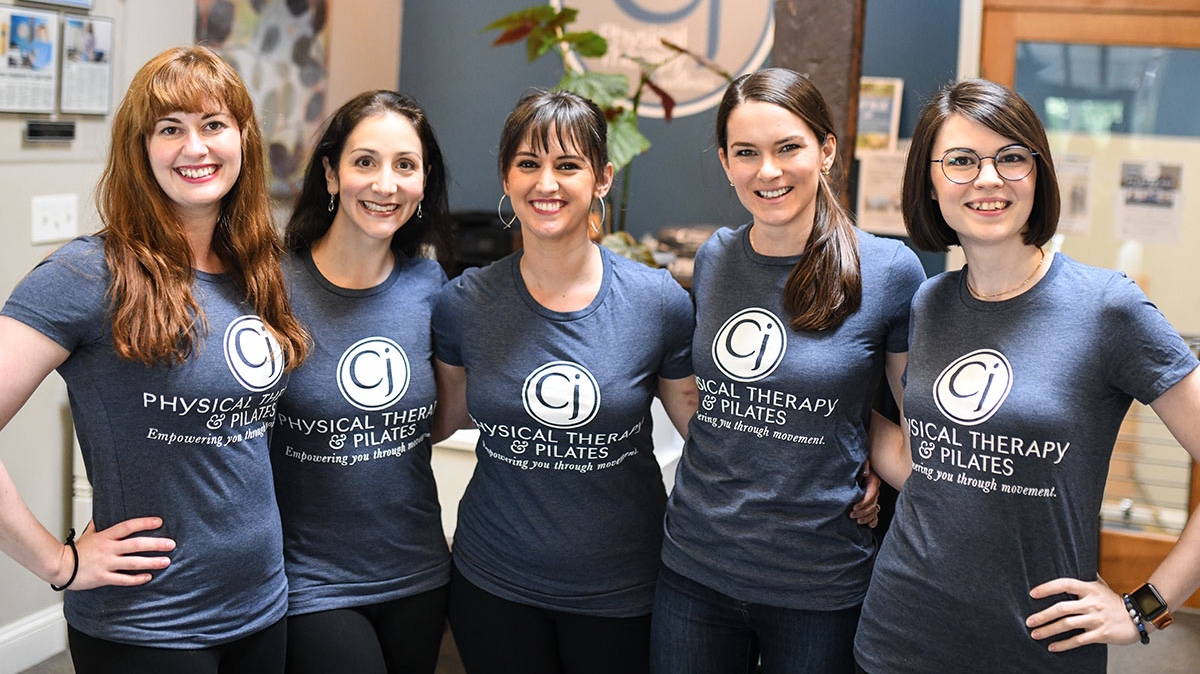Why You Need an Accountability Team
The Importance of Accountability
Lately I’ve been feeling like there are just not enough hours in the day to do everything I need to do, and to be honest, it’s thrown me off track a bit! We have so many awesome things going on here at CJ Physical Therapy and Pilates, and despite how exciting our development and growth has been recently, it can be stressful to stay on top of everything.
However, I need to remind myself how lucky I am to have good, supportive people around me who I can rely on as my “accountability team.” They’re the people who will hold me accountable for the things I really need to be doing, redirect my focus if I’m pouring all my energy into less crucial tasks, see things I’m not seeing, and sometimes to simply give me the thumbs up (or down). For me – that’s my husband and my AMAZING team at CJPT and Pilates (many of whom you’ve had the awesome chance to meet)!

The lovely ladies of CJPT & Pilates!
Strangely enough, this topic has been coming up A LOT lately with our clients too!
I can’t tell you how many times someone comes into my office stressed out and worried because they didn’t get to do their exercises this week, they didn’t do them exactly right – or worse – they try to delay or put off getting help because they don’t have time to do the exercises…
Helping you help yourself
First – getting help for a back, neck, or knee problem that’s been lingering for awhile – or that you’ve been putting off for awhile – isn’t just about doing exercises. That’s actually where most people are confused and get it wrong (if it were that simple – well, frankly – I’d be out of a job!).
Where I help people the most is by becoming a part of their support and accountability team! Often when I first meet with someone, it starts with getting to know what’s going on in their life. How busy are they? Do they spend most of their time in a plane or car because of work? Do they have three little kids, or grandkids, they’re trying to keep up with? Do they have one or two really energetic dogs that have them running around the house or yard all the time?
I want to know what your real life is like. That way we can come up with a realistic plan that will set you up for success. Expecting you to suddenly go to the gym every day when you don’t even have a membership is kind of ridiculous. So is expecting you to NEVER bend over when you’ve got two little kids at home, for example. It’s important that you are working with someone who understands you, your life, and is prepared to be part of your support and accountability system. You don’t need someone who is just going to make life more difficult for by recommending unrealistic treatments or imposing demands that simply won’t work (or more importantly LAST) with your individual lifestyle.
Here for the Long Haul
Now, being a physical therapist in the traditional sense, it would be very easy for me to do some manual work on the table for each of my clients, and even go through some therapeutic exercises that I know will get rid of their pain quickly. BUT… does that actually get you through a physically and mentally strenuous week? Does a quick fix really help in the long run?
No – and that’s why having a support and accountability team – especially when it comes to your health – is absolutely vital.
Don’t work with people who simply put bandaids on the problem in the form of drugs or quick fixes. Work with someone who is willing to dig in and find a real solution, support you along the way, and hold you accountable for the time and energy that you need to invest in your health as well!
If you’re interested in adding a specialist physical therapist (and/or Pilates instructor) to your accountability team, you can reach out anytime or even request a time to talk to one of our specialists for FREE. Thanks for reading – and for holding ME accountable to sharing this advice with you!



